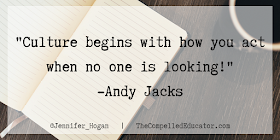Public Education is an awesome, difficult, inspiring, challenging, and rewarding concept and opportunity. When we agree that all means ALL, we commit to educate and grow every student that walks through our door. During my 24 years in education, the needs of students have become greater and more diverse, and schools are seeking ways to meet the most vulnerable students to the highest achieving students.
Today, up to 1 in 5 children experience a mental health disorder in a given year. When untreated, symptoms can show up in school - disruptive behavior, chronic absence, low achievement, and dropping out of school. Sometimes, the mental health issues can cause a student feel so anxious that they refuse to attend.
With limited budgets and lack of awareness, knowledge, and training, schools are missing out on an opportunity to change students’ lives for the better. I would like to share how we assist our most vulnerable students at Hoover High School in our “school within a school” program called New Beginnings.
The New Beginnings program is for students who deal with social, emotional, and or mental issues that prevent them from being successful in a public high school. Until last year, it had been “housed” at a separate building in our district where it, along with our punitive alternative school (which met in a different part of the building), had its own principal, teachers, and counseling staff. Last year, the building was sold and the New Beginnings program was moved to be housed in each of the two high schools to serve the students in their home schools.
The first year it was moved to our school, it was considered a failure. I want to share the pitfalls of the program so that if you implement something similar, you will know where we stumbled and can avoid the potholes.
We designated a classroom for the New Beginnings program where students would remain from first through fifth periods. Teachers from different content areas would rotate to the classroom to work with students on an online curriculum. (The period that they rotated into the New Beginnings classroom became one of their five teaching periods for the day.) Our school social worker as well as grade-level counselors would check in on the students occasionally, but with roughly 700 students in our large public high school, we can’t say that the students in the New Beginnings program got the attention they needed from our staff. The teachers worked hard to help the students to be successful, but very little work got accomplished in the online program and with teachers rotating in and out of the classroom, there was no continuity or anchor for our students. They continued to drift along, and we realized that there needed to be a change.
In the summer of 2017, one of our counselors, Dr. Debbie Grant, and I volunteered to oversee the program. The superintendent had agreed to fund a full-time counselor for the program, so Dr. Grant moved from being a grade-level counselor to the New Beginnings counselor. This meant that she would be in the classroom all day with the students and provide the consistency the program and students needed. Dr. Grant is a licensed professional counselor (LPC), and she and I have heart to advocate for the students who can’t, or don’t know how to, advocate for themselves.
To enter the program, students and parents must fill out an application. Students must want to be in the program for it to be successful, otherwise you will have students in the program who can become resentful and work to resist and possibly destroy the trust and community in the program. Parents sign a release that allows Dr. Grant to talk with doctors, counselors, and/or therapists. This allows all adults to work together to support the students and to ensure that students are getting consistent messages from their adult advocates.
The physical space is a former computer lab that is located in our library. It has an entrance in the library, and it also has a door to our courtyard. This extra exit has been beneficial at different times, like when a student and Dr. Grant need to do a “walk and talk” or if a student needs a few minutes alone in the courtyard to regain composure.
The space also has a restroom, kitchen area, and refrigerator. Students not having to use the public restroom at the school eases a lot of anxiety for several students, and it reduces travel time that results in lost work time. Dr. Grant created “pods” with the desks, and she provided several flexible seating options, including a small sofa, a beanbag, and bungee chairs. She provided lots of different lighting options, and she set up a “puzzle table” in the room. Students needing a mental break can spend a few minutes at the puzzle table before returning to work. Dr. Grant also provided Rubik’s cubes, fidget spinners, colored pencils, stress balls, and more for each pod.
The first period of the day is “Academic Success,” a time for students to do community building activities, have breakfast, discuss relevant issues, learn study strategies, review grades, work ahead in their classes… anything that they need to do to help themselves to be successful in the classroom and in their coursework.
Second through Fifth period are designated for core classes: science, math, English, and social studies. (Students in Alabama must have 4 credits in each core area to meet graduation requirements in those areas.) After fifth period, students have C.R.E.W. (advisory) time for half of a period, then lunch for half of a period. Students can eat in the lunchroom, courtyard, or in the New Beginnings classroom. After lunch, students can go to electives in the building or go home if they have virtual classes or senior release (early release due to being on track with credits toward graduation.)
Besides creating a special physical space for the students in New Beginnings, Dr. Grant also created some special events for the students. In October, our Theatre department hosts “Haunted Hallways” through the school. (It’s is a weekend fundraiser for the theatre department, and the students in theatre classes learn about make-up, special effects, fundraising, advertising, role-playing, deadlines, and teamwork.) Dr. Grant met her students at the school and they all went through the haunted hallways, then they went to the NB classroom where she had snacks for them, and they watched a movie together.
She had a speaker come in from a Jefferson State, a local community college to talk to her students about college admissions.
She took the students on a field trip to the McWane Science Center. Some students had never been on a field trip in high school.
Dr. Grant led students through a book study, The Seven Habits of Highly Effective Teens, where they learned and practiced the seven habits.
The class had an end-of-year cookout in the courtyard after one of our full days before semester exams started.
Most importantly, besides these events, a sense of belonging and safe community was created for the students in the classroom through daily actions. Greeting each student as they entered the room, talking about the hard to talk about, holding as-needed “therapy sessions,” and providing a judgment-free zone were some of the small but powerful actions that created an atmosphere of trust and comfort.
Leaders in the class started to emerge, friendships were created, and lifelong memories were forged.
At the end of the year, the students wanted to meet with me to share their thoughts about the New Beginnings programs.
Here’s what some of them said:
“Last year, I was basically a mute. I didn’t talk to anyone. I had no friends. This year, I have friends and I belong.”
“This program has literally saved my life. I wanted to kill myself earlier in the school year, and if it weren’t for this program, I wouldn’t be here right now.”
“Before this program, I was going to drop out. I didn’t care. I wouldn’t be a high school graduate without this program.”
The students all know the philosophy about the program -- it’s “part of the journey and not the destination.” Our goal is for students to learn coping strategies, confidence, and motivation to be able to go full-time in a regular classroom. We think that it would be better for the student to be in a building full of people who care about them on a daily basis before they go out into the “real world” after high school. We have also reassured students that if they are not ready to leave the classroom, they can stay in the program as they need to. In fact, we will have senior this year who will be in the program first period for Academic Success, and she will go to 3 core classes that are advanced and not a part of the online course options. She will come back to the New Beginnings classroom for her government and economics class, then she will be able to leave school early with the senior release option. She is the go-to person in the room for other students, and she has become a role model for other students.
While we know that not every school could implement a program like this, we do know that our “school within a school” could serve as a model for schools who have been looking for a way to support students who suffer from mental health issues or anxiety about attending school. I encourage you to rethink your physical space, master schedule, and advocates in your building.
If you would like to learn more or come and visit our school and see the program in action, please contact me via email or send me a direct message on twitter.














